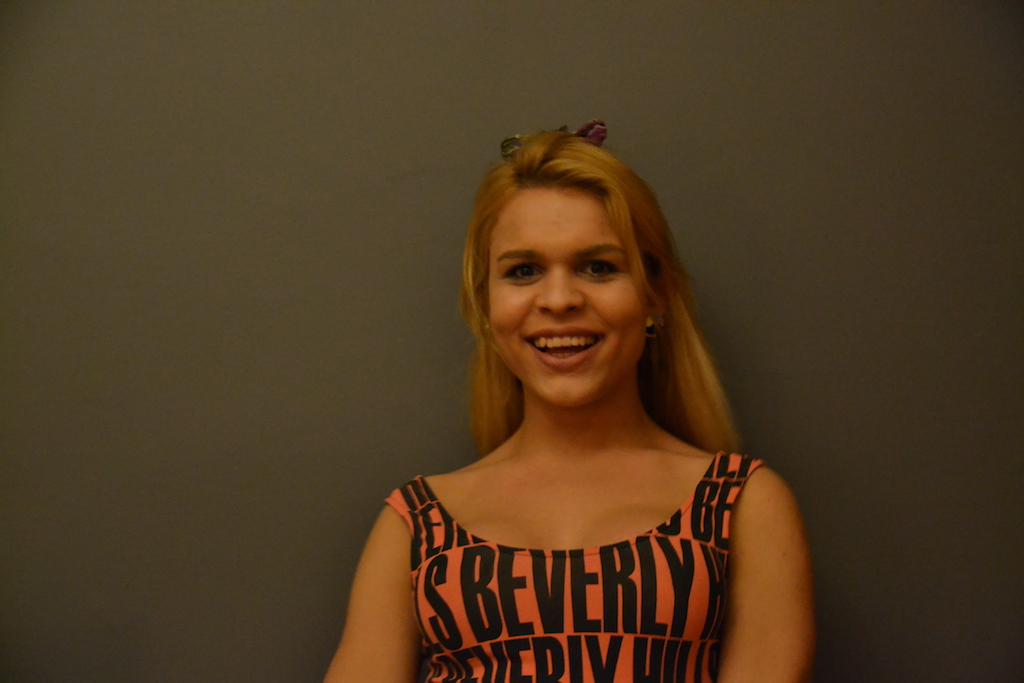Gözde Demirbilek, 22, was stunned when she first heard about the decision to ban all public activities of the LGBTI community in Turkey’s capital Ankara.
“I had a lump in my throat and felt paralysed,” said the activist and editor, who works at online LGBTI newspaper KaosGL.org.
The ban, announced on November 18 last year, applies to all public LGBTI events, including film screenings, theatre plays, exhibitions and round table discussions. Demirbilek described widespread fears that it was only the first step of a wider campaign of discrimination.
“What will come next? Will I be prevented from walking down the street, or going to the store to buy something?” she said.
Most worrying was that the veto was indefinite. Indeed, nearly six months on, there are no signs of it being lifted.
The Ankara governor, whose administration is led by the ruling Justice and Development (AK) party, justified the ban by saying that events organized by the LGBTI community could cause animosity between different groups and endanger the rights and freedoms of other people.
Homosexuality is not illegal in Turkey, and numerous LGBTI associations are registered with the state.
But critics believe the move was the latest in a series of attempts to curtail LGBTI rights in Turkey and to impose the AK party’s conservative view of public morality.
The Istanbul LGBTI pride campaign has already been banned for the last three years running, due to what the authorities called “security concerns”. Just days before the Ankara interdiction was announced, city authorities cancelled a German language LGBTI film festival citing the same reasons.

Derin, the 19- year-old president of Ankara-based transgender rights organisation
Pink Life, said that the ban was “horrifying,” particularly due to its ambiguity.
“If I want to celebrate my friend’s birthday [in a public place], will that celebration be banned as well?” she asked, adding that “getting together and organising ourselves is the only answer”.
The ban was criticised by rights groups across the globe. In a resolution adopted on February 8 this year, the European Union also called on the Turkish authorities to revoke it.
Kaos GL and another Ankara-based LGBTI organization, Pembe Hayat, called the ban “illegal, discriminatory and arbitrary”.
“There can be no legitimate or legal grounds for such a wholesale ban that touches the core of rights,” they said in a statement. The situation created by this decision was “vague, open to interpretation and rights violations”, and was even “criminalizing LGBTI existence”.

Kaos GL coordinator and veteran LGBTI activist Umut Güner said that discrimination against the community was widespread, and that the ban would only deepen a culture of impunity.
“This decision may actually encourage some groups to target LGBTI community”, he said.
According to Kaos GL’s annual hate crime monitoring report, 169 incidents were reported in 2016. Figures are likely to be far higher, as many LGBTI people are afraid of going to the police.
The European Commission against Racism and Intolerance (ECRI) report on Turkey found that “Turkey does not collect data on racist and homo/transphobic violence”, although many LGBTI, “in particular transgender persons…have been killed in recent years”.
The response from the authorities had been inadequate and, “disciplinary measures and verdicts against law enforcement officers remain limited,” ECRI concluded.
Even though the measure has been imposed only in Ankara, human rights defenders say it affects the entire country.
Mert Güzel, a 22-year-old LGBTI activist from the city of Bursa in the Marmara region, said the effects can already be felt in this city, too.
Only a day after the ban was announced, a film screening to mark the Transgender Day of Remembrance was banned by the Bursa authorities without any official explanation.
“As an openly LGBTI activist, I am constantly afraid of hate attacks,” said Güzel. “Bursa was once the capital of the Ottoman empire and very often conservatives use this as justification for their assaults against us. They use phrases such as ‘No fags on Ottoman soil’ and ‘We don’t want any LGBTI in the city of saints,’” Güzel added.
Activists said they were determined to fight the ban, and Pink Life has partnered with Kaos GL to file a lawsuit against the governor’s decision.
Kerem Dikmen, a lawyer representing Kaos GL, said that the ban was a deliberate attack on the community.
“The governor’s office is telling LGBT associations that they can continue to exist and that the ban does not affect their status as legal entities,” he said. “However, it also says that members of these associations should not step out of their buildings and should not reach out to people, other than their members and activists.”
Demirbilek said that having fought so hard for their rights, the LGBTI community was determined to protect what they had so far achieved.
She said that the ban would ultimately fail, adding, “I believe with my whole heart that we will always find a way to get together, regardless of the ban.”







